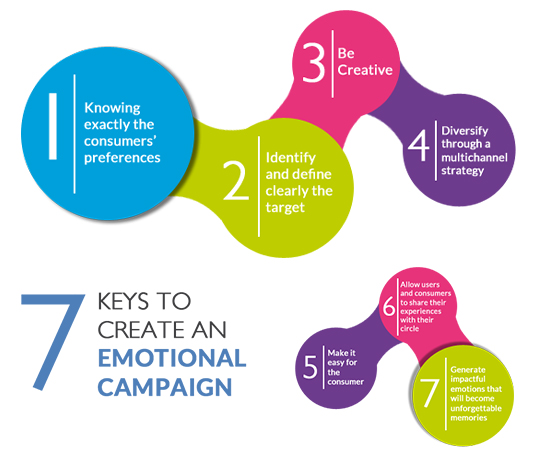
Consumer needs, demands, and expectations are constantly evolving. To attract new customers and stand apart from the competition, today’s marketers have to think outside the box. Experiential marketing is an effective way to connect with users and build brand recognition.
Although traditional and digital marketing strategies can be highly effective, there is something impactful about hosting a live, in-person experience. Experiential marketing is now one of the top five marketing strategies implemented by today’s businesses. Meeting customers face-to-face and providing a hands-on experience that appeals to all of the senses makes a lasting impression that can lead to conversions.
Keep reading to learn everything you need to know about experiential marketing and why you should consider incorporating it into your own marketing efforts today.
Key Takeaways
- Experiential marketing is part of an omnichannel marketing strategy that creates in-person immersive experiences for prospects to engage with your brand.
- A global pandemic helped show businesses the true value of experiential marketing and how hybrid events offer the best of both worlds for connecting with prospects.
- Experiential marketing impacts your business in four major ways.
What Exactly is Experiential Marketing?
Experiential marketing is one element of an omnichannel marketing strategy that engages an audience with immersive experiences. Examples include:
- Expos and trade shows
- Festivals
- Pop-up shops
- Retreats
- In-person demonstrations
- Community service events
Through these experiences, people learn about your company, see your products firsthand, and meet representatives from your business. These opportunities allow you to connect with your prospects on a deeper level and strengthen current relationships, attract new customers, and build a loyal following.
The goal of experiential marketing is twofold. First, it aims to create an emotionally resonant experience for people to develop deeper connections. Second, it builds a positive image of your brand in the minds of your consumers. While you ultimately hope to sell a product and gain a customer, experiential marketing is really about building a solid brand reputation and connecting with people.
If your experiential marketing efforts are effective, you could potentially increase ad revenue, grow page count, and grow distribution. The real goal is, however, for people to grow familiar with your brand and become long-term brand ambassadors.
The following video explains experiential marketing in further detail and provides examples of effective campaigns:
What Prompted the Popularity of Experiential Marketing?
When a global pandemic forced businesses to close and sent people working from home, companies had to get creative about how to interact with people. It began with virtual meetings held online and eventually, events began to take place the same way. People were able to connect safely and, without the limitations of travel expenses, more attendees were able to attend and engage online.
As virus cases began to subside and businesses began to resume in-person events, not everyone was comfortable gathering right away. Some events took on a hybrid form —partially online and partially in-person. Virtual meeting spaces and panels combined with in-person instruction gave attendees the best of both worlds. Ultimately, it showed businesses the value of experiential marketing and well-rounded experiences that enable companies to create personalized, engaging opportunities to connect with prospects and spread the word about their brand.
4 Benefits of Experiential Marketing
Immersive experiences are a highly effective element of an impactful omnichannel marketing strategy. Here are four major benefits of experiential marketing.
1. Build a Personal Experience
Today’s consumers are more discerning and expect a personalized customer experience. Experiential marketing is highly customizable, enabling businesses to create personal interactions that are relevant and resonate with customers.
Through careful audience research, you can create events whose topics address specific concerns that are on your customer’s minds. You can assemble an expert panel to answer questions, create personalized invitations and giveaways, and develop virtual and physical interactions that meet a need. Experiential marketing provides infinite opportunities to create a custom experience that prospects will enjoy, appreciate, and remember.
2. Create Deeper Connections
Experiential marketing excels in allowing businesses to connect with customers on a deeper emotional level. This is important because 83% of people are more inclined to buy from a brand with whom they have an emotional connection. When you meet with someone in person, you provide an opportunity to put a face with the name of your company. People can visit with you and see what you’re all about. This helps to build trust and, eventually, customer loyalty.
Once you’ve built these lasting relationships, not only will they likely result in future purchases. People will also begin to share your information with their own contacts, broadening your reach, attracting more prospects, and driving traffic to your site for increased conversions.

3. Leave a Lasting Impression
Today’s consumers see up to 10,000 ads a day. How in the world are they going to remember one brand over another? Experiential marketing provides in-person experiences that leave a lasting impression. Because in-person events engage all of the senses, they’re more likely to be remembered. People will likely recall seeing the product demonstration at the fair, or throwing an axe to win a prize, or the smells and sounds surrounding them at the expo.
Experiential marketing helps set you apart from the competition. When customers look for a solution to their problem, will they remember the brand name from the digital ad they saw on social media, or will they remember the in-person event where they got to meet with people face-to-face? Live events are sensory and, therefore, more memorable.
4. Deliver Greater Value
Although the cost of creating an in-person event is more expensive than a digital ad, it can actually deliver a greater value overall. When people attend an engaging event, they’re likely to share their experience with their own contacts. They’ll post on social media, live stream videos, and post photos of themselves engaging with the opportunities you’ve created. This spreads the word about your event, and it gets your brand name more visibility.
When executed well, experiential marketing becomes a self-perpetuating machine. If you develop a branded experience people enjoy, they’ll do the marketing for you. Since 79% of people trust online reviews as much as personal recommendations, these brand ambassadors are important for future growth and success.

Create an Effective Experiential Marketing Strategy
BOOM Communications provides clients with marketing, advertising, and printing solutions to stand out from the competition and attract new prospects. We can help create impactful experiences that can boost your newspaper printing and magazine printing business.
Contact BOOM Communications today to learn how we can help you create an experiential marketing strategy to benefit your brand.
